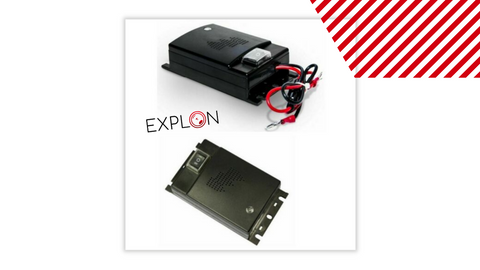Inviting your friends and family to your home involves a lot of planning. You have to set up refreshments, send the invitations and receive them at the entrance of your home. This is why it can be annoying when someone shows up uninvited, especially when you've not done any planning or if they're unwelcome at your home.
Like people, animals can be a nuisance and invite themselves not just into the home but also into your car. It may sound unreal to have rodents in the car, but it is more popular than you think.
Rodents generally lurk around in the trash or sewage, but sometimes, these animals can find their way into your vehicle for reasons best known to them. It's not only disgusting but unsanitary to have these animals in your immediate surroundings.
Thankfully, there are many ways you can get rid of these things. And one of the car accessories you can use is the ultrasonic car repeller. This article will detail all you need to know about the ultrasonic car repeller and how to prevent and avoid these rodents altogether.
What is an Ultrasonic Car Repeller?
As the name implies, an ultrasonic car repeller is a repellent used in cars and other automobiles. This car accessory helps to prevent rodent infestation by using frequencies that are not harmful to humans but sensitive to rodents.
A rodent repellent doesn't work all the time. It only does this when the car is off and parked for some minutes. The ultrasonic vehicle repellent is made of a metal alloy, usually aluminum, that is resistant to corrosion, is high quality, and is durable.

Sure Signs That You Have Rodents in Your Car
It can be hard to tell if you have rats in your car, but here are some surefire signs to help you detect them.
If you find that your dusty automobile battery has paw marks, you might be dealing with rodents.
If you have a strong sense of smell, you'd be able to recognize your car's funny and unpleasant smell. If a rodent is trapped and maybe dies in your car, you'd smell it more strongly.
If you've ever heard noises that sound like something is chewing or scratching the surface of something while in your car, you could listen some more to find out where the sound is coming from.
If the wires in your car, the seat, or the floor mat look like they have been chewed by something, it could be a rodent.
If something in the vehicle used to work perfectly fine but suddenly starts acting up, it could be a sign that the wires have been damaged due to a rodent infestation.
The droppings of rats look like dark-colored pellets. If you've seen this frequently inside or around the car's engine, you have a rodent issue.
If you can find dog hair, some leaves, pet food, and other materials stacked in a vehicle compartment, then you should know that some animal plans to camp there or make a nest.
Why are There Rats in Your Car?
Rats generally go where there's food. If your wires are made of biodegradable plant-based materials, or if you keep food around in your car or outside, you'll most likely have a rat problem.
Rats need warmth and typically live in dark places. They can take shelter under the car's hood, especially in winter, or on rarely used cars.

How Does the Ultrasonic Car Repeller Work To Avoid Rats?
This rodent repellent will help you eliminate rats, squirrels, mice, and other rodents that get into your car. It is installed on the battery and connected using a simple two-wire connection.
When the rodent repellent is working, it emits powerful ultrasounds and LED strobe lights at random times and has a frequency that constantly changes to keep mice at bay.
This car accessory is a smart one as it is automatic. It comes on when it detects that the voltage of the battery is less than that of the generator. This happens when the vehicle is parked.
This same method also saves battery power when the car is on. It works only with batteries with a 12–24 volt range. If the voltage drops below 11V, the car accessory stops working to protect the vehicle battery.
Other Methods for Getting Rid of Rodents in Your Car
There are other methods you can employ to get rid of rodents in your car. However, combining these methods to get the best results is better.
Do not park the car around a bush or where there's garbage. Clear the surrounding area of all litter. Check for trash anywhere around the car and dispose of it. Declutter the area if there's a lot of stuff in your vehicle garage. Parking in a spacious, clean environment makes it less likely for you to have a rodent problem.
As mentioned earlier, one of the reasons there are rats in your car is that they need food to survive. You must ensure you don't have food anywhere near your car, inside or around it. If you have little kids, it will help to get a vehicle vacuum cleaner to help clean thoroughly. Or you could make a rule for food not to be allowed in the car. If you have pets, ensure you don't take treats or pet food into the car.
Rats prefer dark spaces, so parking with ample lighting will help avoid rats. If your garage is dimly lit, you can add extra bulbs to improve the lighting. Also, make sure the automobile hood gets exposed to sunlight because mice like to nest in the hood.
Just as rodents hate loud noises, they also dislike strong smells. Suppose you have any strong-smelling oil, such as peppermint oil, dab a cotton pad or cotton balls in it and place it at different places within your car. You'd have to do this multiple times to get the best results.
If you're positive you know how rodents get into the car, find something to seal the entrance. It would help if you also inspected for other entry points to be sure the rodents don't have more than one entryway. You can also ask your mechanic for help if you can't do it alone.
This tip is helpful for cars you barely use. When rats notice that the vehicle is always stationary, they can turn it into a breeding ground for their offspring. If you have a car like this, turn on the engine frequently, even if you're not taking it out for a spin.
Rodents are afraid of bigger animals like cats and dogs because they can easily prey on them, so the rodent will think twice for its safety before coming near your car when you have these animals around.
This is one of the oldest tricks to trap a rodent and is still effective. That's all. Buy a mousetrap and place food bait to lure the rat in. You must be careful with this trap if you have little kids or other tiny animals.
If you're tired of seeing rats everywhere, you can opt for rat poison. It works very effectively, but the downside to using this chemical is that the rats can die anywhere, including in your car, which would leave a terrible smell.

Places To Check for Rodents and Their Nests
The most common places where rats, mice, and other rodents make their breeding grounds.
If the vents are dark and warm, they are good for shelter, and if these animals are hungry, they have access to the wires for chewing.
The trunk is spacious, and it can become a breeding ground for rodents if it's not used frequently. If the trunk has small compartments, that's an extra point that makes it a cozy space for the rat.
Also known as the dashboard compartment, it can be converted into a lovely warm home for mice if it's not used for a long time.
Rats may be breeding in the air filter box if you have a huge unused car. These compartments are larger in more oversized vehicles than in smaller ones, and what better way to enjoy life than in a small, spacious, warm apartment?
If you leave the vehicle open or if there's an entry point into the car, rats may be hiding under the seat. They can make it their nesting ground because this area is warm, and nests can thrive there.
Batteries emit heat, which can be an attractive spot for rats, especially in winter.
What Not To Do When You Have Rodents in Your Car
If you find any signs of rats, such as rat droppings or urine, do not use a vacuum cleaner to clean up the mess. If you do this, you could spread bacteria already present.
What you need to do at this point is to use disinfectant to thoroughly disinfect the car for about five to ten minutes before cleaning it up. Make sure you're protecting your hands with a glove.
When you're done cleaning, put all the dirt in a bag, cover it with extra disinfectant, and dispose of the bag properly. If you're cleaning out the car hood, disconnect the battery before wiping all surfaces with disinfectant. When the battery is dry, you can reconnect it.

What Happens If You Don't Get Rid of Them?
If you leave a rat problem unresolved, It could cause even more significant problems for your car. For example, if the rodent chews on your wires for an extended period, it may damage a useful vehicle compartment. Sometimes this damage can be so extreme that you won't be able to turn on the car at all.
If these animals breed in your car, especially in places like the air filter, You could inhale bacteria, viruses, and other germs every time you get in your car. Rats and other rodents are hosts to several airborne diseases and viruses, which can cause fatal sickness in humans. A dead animal in your car could also spread diseases, especially when it's not cleaned out thoroughly with a disinfectant.
If you own a vehicle that is rat infested, you'd be uncomfortable getting in the car because you're not sure whether a rat would jump in your face when you're driving. If the rats have chewed a wire, and you're unable to move the car, it could lead to discomfort, especially when you have places to be. The spread of diseases can also cause illness, which is a threat to healthy living.
If you don't take care of your rat problem early, you'll spend more money to repair damage in the long run. For instance, if a rat chews the wires in the main harness, you'd have to fix this, which costs a lot of cash.
Conclusion
Having unwanted animals make your cat's living space is frightening and, at the same time, annoying. They cause all kinds of damage to the car and can even put you at risk of contracting an illness.
To avoid this problem, an ultrasound car repellant can prove helpful in repelling these little creatures. It helps to combine this method with the other prevention methods stated in this article.
Remember to park your vehicle away from bushes and dumps and turn on the engine of new cars regularly. Rodents are also super attracted to food, so if you have any food crumbs or spilled pet food in your car, clean it up thoroughly.













